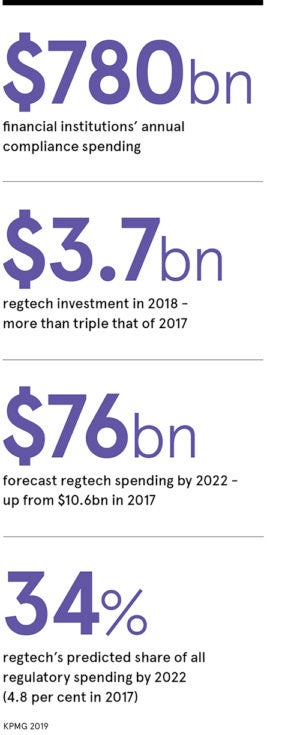The introduction in January 2018 of MiFID II, a legislative framework designed to standardise practices across the European Union and improve protection for investors, and the subsequent intervention measures placed by the European Securities and Markets Authority that August, have had their intended effect of increasing transparency in the contract for difference (CFD) industry.
Responses to the complex regulation among brokers have varied, however. Some have sought loopholes, such as classifying retail traders as professional clients to circumvent the new measures. Some have complied and watched their trading volume and overall profit levels plummet. Others have taken this complicated situation and identified areas for growth, by reimagining their strategy and business models to provide a better service to their customers. One such broker is Exness.
The new rules aimed not only to enhance transparency, but also to protect investors via measures such as restricted leverage, new margin close-out rules and negative balance protection, which means investors will never end up owing more than they invested.
“Exness offered negative balance protection to its clients long before legislation made it compulsory,” says Andrey Shamne, head of product at Exness. “Furthermore, in all the jurisdictions in which we are licensed and operate, European and other, our clients’ funds are segregated and kept entirely separate from the company’s funds, ensuring they will not be affected in the unlikely event of a liquidation.”
 Insofar as investor protection goes, therefore, the new legislation was completely embraced and fitted in perfectly with the existing policies of reputable brokers such as Exness.
Insofar as investor protection goes, therefore, the new legislation was completely embraced and fitted in perfectly with the existing policies of reputable brokers such as Exness.
Regarding Europe specifically, the Exness Group recently decided and announced to its clients that in the New Year, its CY and UK entities will move towards a pure business-to-business direction, through the offering of a white label product and liquidity provision. By doing so, it hopes to tap into new markets and gain new partners to drive its business into the future.
“Our expansion strategy is multifaceted in that it does not only lie in retail. In fact, our retail client base in Europe has never been central to our business, so the regulatory measures of 2018 catalysed the arrival of two realisations this year. One, that the restrictions imposed for our European entities had little impact on business. And two, that if our retail business in Europe was never key to the company’s operations, perhaps it was time for a change,” says Mr Shamne.
The changes caused by tightening regulatory requirements have also driven a revolution in regtech (regulatory technology), as stringent compliance and anti-money laundering (AML) measures increasingly influence the CFD industry. Those that do not adhere to compliance standards cannot sustain a brokerage business in such times.
If we take a look at the greater world of finance and banking, regtech has indeed become a rising movement and a key component in battling common challenges faced by financial institutions. The CFD industry is no exception. Reputable brokers are investing in regtech tools to automate know-your-customer (KYC) and AML processes, leveraging faster and more effective solutions that leave an automatic trail and don’t allow for human error. Falling foul of compliance standards is not an option in today’s industry, where all measures must be taken to reduce risk and prevent fraud.
Exness has recently partnered with automated KYC and AML solution Sumsub for fraud protection assistance and globally inclusive AML compliance. The new EU AML5 Directive, Financial Action Task Force guidelines and the generally growing AML requirements governing the financial sector have made it more important than ever to establish near-flawless identity verification strategies that allow for zero error. As Exness’s global expansion advances alongside increasingly strict rules aimed at protecting both client and broker, the firm is keen to ensure nothing is compromised.
Implementing an automated KYC solution is crucial in an era when it is imperative to adhere to regulatory compliance and battle increasing identity fraud. The Sumsub solution automates identity verification and anti-fraud, providing compliance to relevant regulations and KYC/AML screening. The Sumsub dashboard allows Exness to choose its workflow out of fully automated, semi-automated and agent-assisted verifications. It’s also possible to manage and control bulks of applicants, their status, history and reasons for being approved or declined. The solution documents each decision’s history and produces reports following market practices used in AML and combating the financing of terrorism frameworks worldwide.
The regulatory landscape will continue to have a strong impact on the industry’s evolution, especially when it comes to regtech. It is the job of brokers to adapt and evolve in harmony with all regulatory changes and turn any situation they face into a constructive one that benefits investors.
“Regtech has often been called the future of compliance and a skyrocketing industry,” says Mr Shamne. “With the growing needs that financial institutions must meet, the precautions they must take in terms of risk exposure and fraud, and the need to work faster and more efficiently to keep up with technology while onboarding clients, regtech will no longer be a novel term, but an absolute must for any respectable financial institution.
“We see ourselves at the forefront of this movement, firstly because we have always identified as a fintech company, offering services in line with the latest technological advancements, and secondly because the compliance demands in the financial industry are certain to increase even more in the coming years, and we intend to do our due diligence every step of the way.”
For more information please visit www.exness.com

